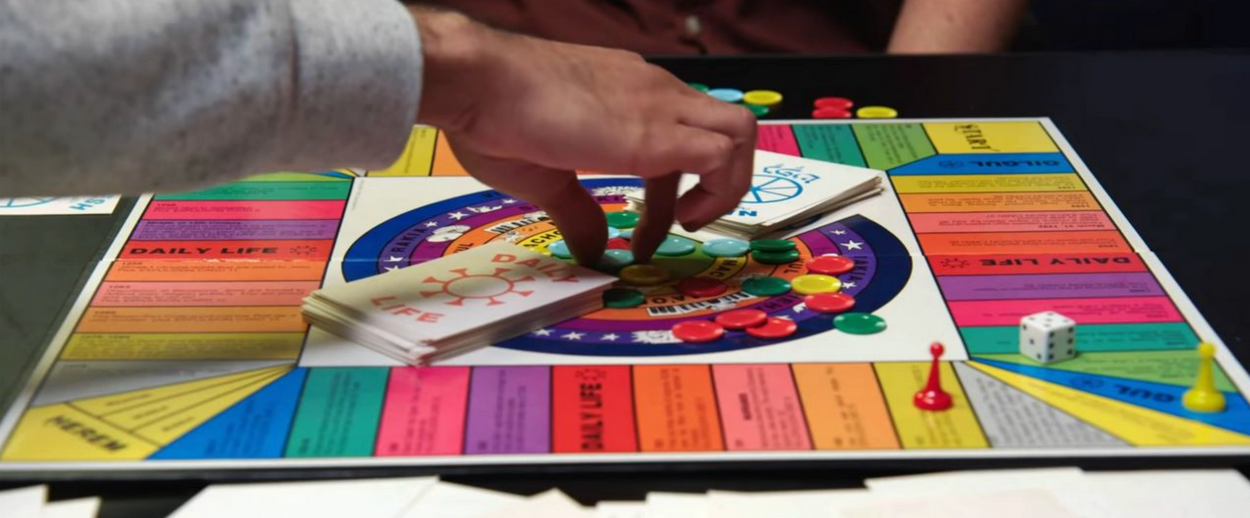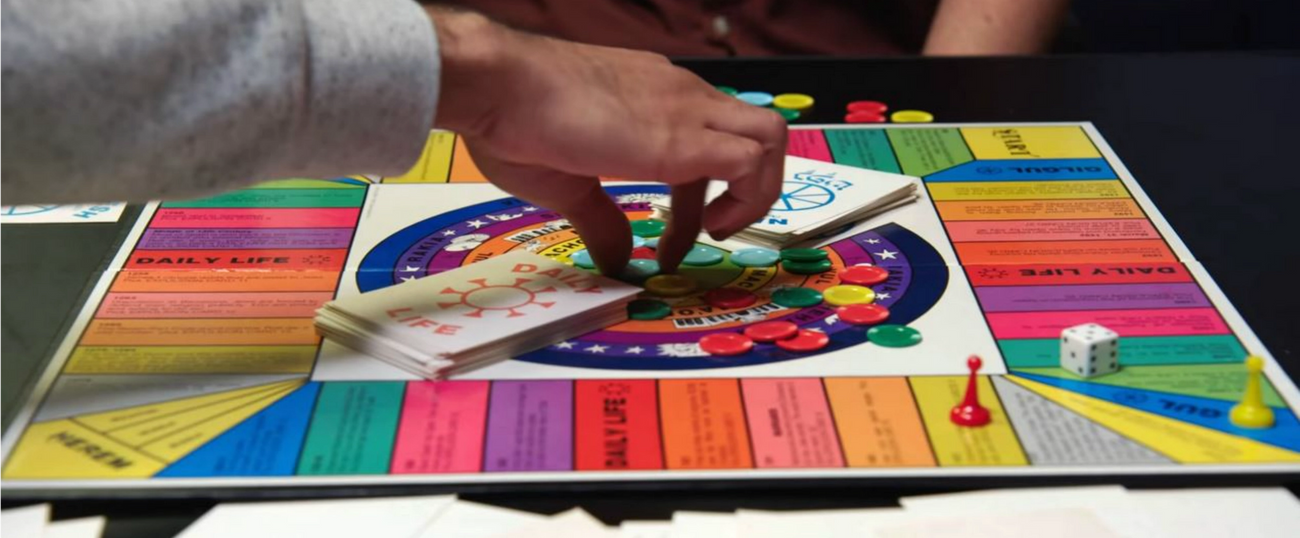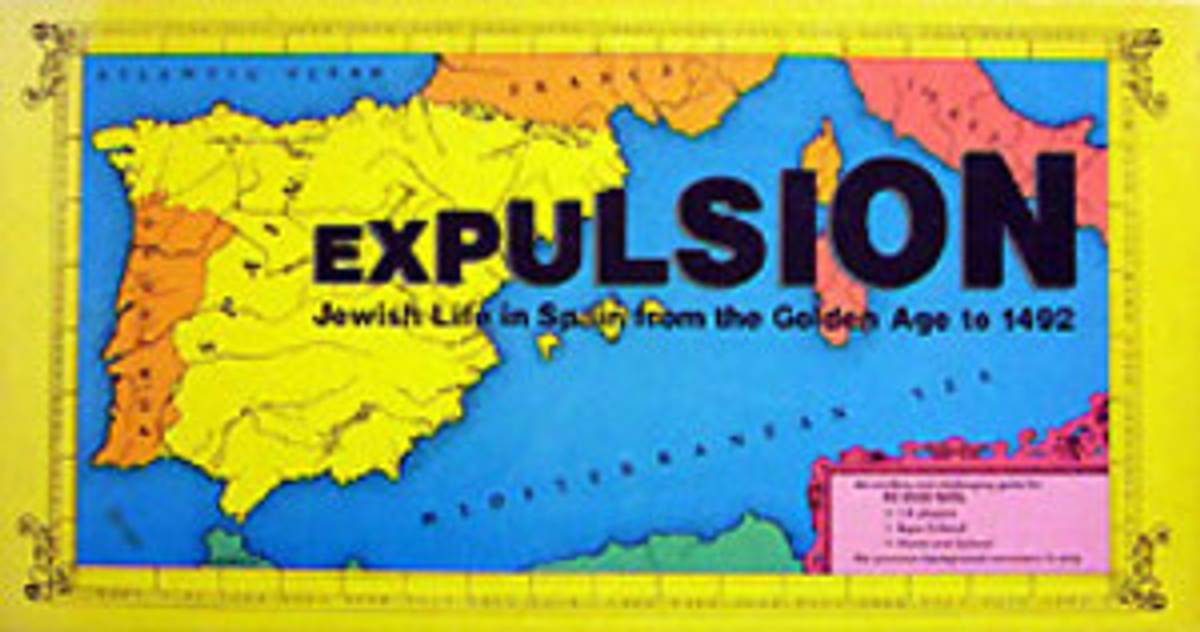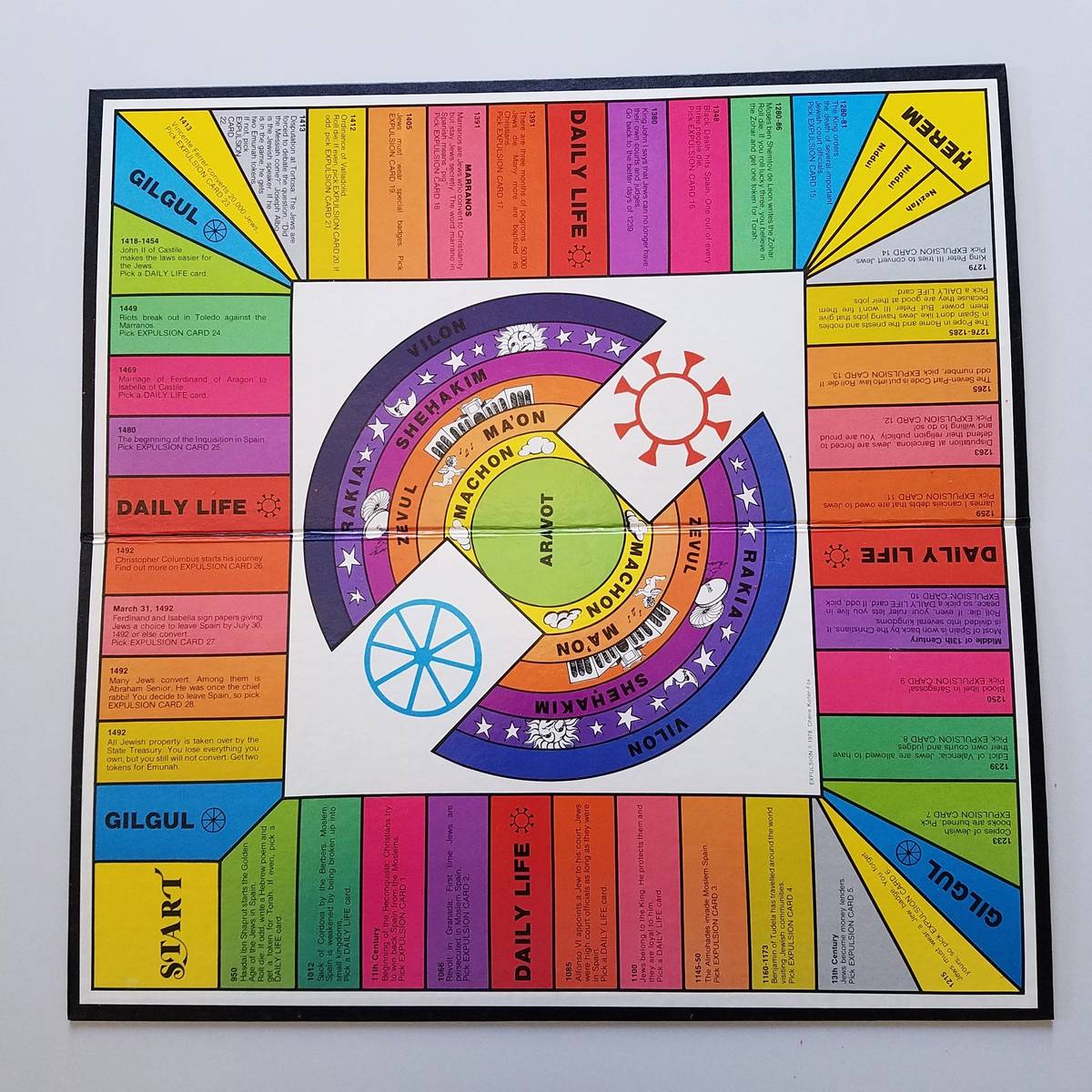The Story Behind Expulsion, a 1970s Board Game About Jews During the Spanish Inquisition
How a grad student’s labor of love become relevant again—thanks to the head writer of ‘Full Frontal with Samantha Bee’




Last November, a few weeks after Donald Trump was elected president—a time during which many people were worried about immigration issues—Jo Miller, the showrunner for Full Frontal with Samantha Bee, a satirical news show on Comedy Central, had an idea: make a video of the show’s writing staff playing Expulsion, a board game in which participants play as Jews during the Spanish Inquisition. The clip was captioned: “The team expel their post-election stress with a fun medieval adventure game!”
Is this Expulsion game real? I thought to myself, skeptical that such a board game existed. Not only is it real, I came to learn, but it’s decades old and there are fewer than 200 unsold copies available.

Originally released in the late 1970s, and created by Cherie Koller-Fox, Expulsion’s gameplay (and plot) is fairly straightforward: Players (up to 6) circulate the board, Monopoly-style, traveling, through the roll of a dice, through Spain, from the Golden Age in 950 to 1492, when they were expelled. Each player is assigned a real-life historical figure, such as Luis de Torres, or Judah Halevi, and as they go around the board they acquire or lose tokens that represent Jewish values (Torah, emunah/faithfulness, etc.). The goal is to acquire as many tokens as possible—but be prepared to go through a forced conversion or martyrdom several times (you’ll need a new character card for each death) on your way towards witnessing the decline of Jewish life in Spain. What fun!
“It’s not really a game, game,” said Koller-Fox, the rabbi who created the game as a graduate student at Brandeis University. “It’s not the best game I’ve ever played, and it never ends.”
Koller-Fox hatched the idea while taking a “History of the Jews in Antiquity and the Middle Ages” course taught by the prominent Jewish scholar Nahum Glatzer. In a way, Glatzer was one of her first beta testers, as she submitted an early version of the game as a requirement for the course. (She recalls receiving an “A.”)
Shortly thereafter, Koller-Fox decided to improve on the game, bringing in friends and colleagues for feedback, and artists to give Expulsion more color. She printed up some labels, and with help, rolled them on to the box one at a time. Eventually, she packed 1,000 completed games and embarked on the eternal task of finding them homes. She sold a copy here and there, to families and schools through Jewish book stores like CAJE’s Judaica exhibit area. The 500th anniversary of the Expulsion from Spain led to a renewed interest in 1992.
Turning a profit has never been the goal, she said. “It wasn’t as much a business as a chance to talk about what Jewish education could be. We were trying to make a statement about Jewish education and about how it could be exciting and participatory.” Over the years, Koller-Fox offloaded most copies of the game—about 80 percent of them. The rest went into storage, where they have largely remained.

As with many aspects of Judaism, Expulsion is about the journey rather than the goal. Certainly, this reflects Koller-Fox’s philosophy. After all, she is perhaps best known in the Jewish community as the founder of the non-profit Coalition for the Advancement of Jewish Education (CAJE), and its successor NewCAJE, both of which focus on transmitting Jewish tradition and continuity across generations. And the educational aspect of Expulsion is nothing if not fun. One card for the game reads as follows:
Nachmanides speaks for the Jews at the Disputation of Barcelona. He is driven out of Spain because he wins! So in 1267, he leaves for the Land of Israel, never to return to his family. Roll die. If even number, get a token for Torah for being in the Disputation. If odd number, you are ‘exiled’ and lose one turn.
The game has extra frills like “Cherem,” the risk of being excommunicated from the Jewish community, like Monopoly’s jail. And the design is imbued with Kabbalistic imagery and references. For example, to win the game you have to climb through the seven circles of heaven. But winning, and therefore ending the game, is a rare occurrence; for the most part, you circle the board, time and time again, as a vehicle to read the different cards sharing nuggets of history. Is it enjoyable? Your mileage may vary, but if you’re interested in history and learning about both the Spanish Jewish community’s achievements, and how the rising tide of Christian radicalism slowly destroyed it, then you could be in for a lot of fun.
Since Expulsion appeared on Full Frontal, there has been renewed interest in the game, which has delighted Koller-Fox, who thinks it’s no coincidence that its comeback is occurring now, considering the rise in anti-Semitism around the world.
The goal of the game isn’t survival, or settling in the Holy Land. It’s holding on to your values, no matter the cost. And perhaps that’s why Miller, who has a PhD in Medieval Jewish History, knew that the game would serve well as a satirical backdrop for a Full Frontal promo. After she pitched the idea for the skit and got the green light, another writer, Eric Drysdale, almost immediately got in contact with Koller-Fox, who gave her full blessing (and legal permission) to use the game. She even sent them an unopened copy.
The clip has thus far been watched nearly 150,000 times (as of this publishing). In response to the newfound attention, Koller-Fox’s daughter Leora immediately suggested opening an Etsy shop. After all, the remaining copies of the game had been sitting in the family’s basement for decades. They took stock of how the games were doing; some needed new box bottoms, and the rubber bands had grown so old they had crumbled, and needed replacing. But they were generally in good condition, and almost as soon as they put fifty of them on the market (never before opened, first edition!), they sold out.
Despite this surge of interest, Koller-Fox isn’t sure if the game has a future—it was never meant to be the next Kosherland. But she has considered re-releasing it or even adapting Expulsion into a video game. She is also glad that Jewish education is more open to non-traditional forms of learning than when she began her career. But she believes that if there were ever a time for this game, it’s now. She considers the fear she and her friends are facing against a rising tide of anti-Semitism in the United States today, despite the fact that it’s been comparatively better for Jews than during almost any other time or in any other place. She wonders if it could disappear. “That’s Jewish history, and I think were all asking ourselves that question now: ‘How will we know when it’s dangerous here?’ And a couple of years ago we never would have been asking ourselves that question.”
Gabriela Geselowitz is a writer and the former editor of Jewcy.com.